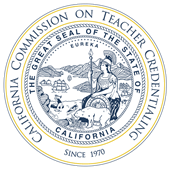
California Approves New Options for Incoming Teachers to Demonstrate Professional Competency
2021-22 State Budget Agreement Creates Coursework Alternative to CSET and CBEST Examinations
(Sacramento) – Today, Governor Newsom signed the TK-12 Education Trailer Bill (AB 130) creating new pathways for aspiring teachers to demonstrate they have the subject matter and basic skills knowledge necessary to begin teacher preparation. Part of the 2021-22 State Budget agreement, California expanded the choices available to teacher candidates by permitting, for the first time, relevant collegiate-level coursework to be used to meet the Basic Skills and Subject Matter requirements in lieu of the California Basic Education Skills Test (CBEST) and the California Subject Examination for Teachers (CSET).
These changes reflect the State’s recognition that intentionally designed, performance-based measures are rigorous and valid alternatives to traditional paper and pencil or computer-based tests for determining one’s readiness to enter teacher preparation.
“This is a game changer for those who have dreamt of becoming a teacher only to find their paths blocked when they couldn’t pass the Basic Skills or Subject Matter entrance exams. These tests are meant to accurately measure readiness to begin teacher preparation not to be a barrier that keeps potentially great teachers from learning to teach,” said Mary Vixie Sandy, Executive Director of the Commission on Teacher Credentialing. “We are eager to move forward with this shift in State policy. As alternatives to high-stakes testing these measures will right-size the role of testing and allow a broader and more diverse array of people to make a career out of teaching.
Basic Skills Requirements
All teacher credentialing candidates must meet the Basic Skills Requirement prior to beginning a teacher preparation program. Nearly all candidates (90.4% in 2018) satisfy the requirement by taking the CBEST examination despite the availability of the following test alternatives:
- Passing the CSET: Multiple Subjects Plus Writing Skills Examination;
- Passing the CSU Early Assessment Program or the CSU placement examinations;
- Achieving a qualifying score on the SAT or ACT;
- Achieving a qualifying score on the College Board Advanced Placement (AP) examinations; or
- Passing a Basic Skills Examination from another state
Data from 2013-18, indicates that 67.8 percent of examinees pass the CBEST on the first attempt and 83.8 percent pass on subsequent attempts. Candidates must pay a $102 test fee ($41 for the paper-based test) and may be required to pay late registration, or emergency registration fees. Many candidates report retaking sections that they did not pass multiple times and must pay the administration fee for each attempt.
The new Basic Skills flexibility creates the option for aspiring teachers to meet this requirement by completing full-credit, college-level coursework with a letter grade of B or higher in the subject areas of reading (including courses in critical thinking, literature, philosophy, reading, rhetoric, or textual analysis), writing (including courses in composition, English, rhetoric, written communications, or writing), and mathematics (including courses in geometry, mathematics, quantitative reasoning, or statistics). Courses from closely related subject areas may also be used in this manner.
Individuals may also seek approval from a California teacher preparation program to mix-and-match from among all the options permitted under current law, including the CBEST subtests.
This proposal was first introduced as AB 1982 (2020) by Assemblymember Cunningham and was reintroduced as AB 312 (2021) by Assemblymember Seyarto before being incorporated into the 2021-22 state budget agreement.
Subject Matter Requirements
All multiple subject, single subject, and education specialist teacher candidates are required to demonstrate competency in the subject matter they will teach before completing preparation and earning a credential. Until now, a candidate could meet this requirement either by taking and passing all the appropriate CSET examination or by completing a commission approved Subject Matter Program.
The approved measure expands the options available to aspiring teachers by allowing the approved preparation program to accept subject-relevant coursework that meets or exceeds the Commission’s subject matter requirements.
The measure additionally allows incoming teachers to meet the requirement if they have completed an academic major in the subject they will teach.
- For Single Subject credentials, the major must be in one of the subjects of single subject credential defined in statute.
- For Multiple Subject credentials, the major must be in liberal studies or an interdisciplinary major that addresses all the content areas of the Multiple Subject credential.
- For Education Specialists the major must meet the Multiple Subject requirements or be in a subject aligned to authorized CSET examination content areas used for an Education Specialist credential.
Aspiring teachers will be able to demonstrate competency using all available options or a combination of options, for example passing two of three CSET subtests and using prior coursework to meet the requirement.
This proposal was first introduced as AB 2485 (2020) and reintroduced as AB 437 (2021) by Assemblymember Kalra before being incorporated into the 2021-22 state budget agreement.
Further guidance will be provided on the Commission on Teacher Credentialing website ( www.ctc.ca.gov).
###
.png?sfvrsn=c28b72b1_10)
.png?sfvrsn=cd8b72b1_0)